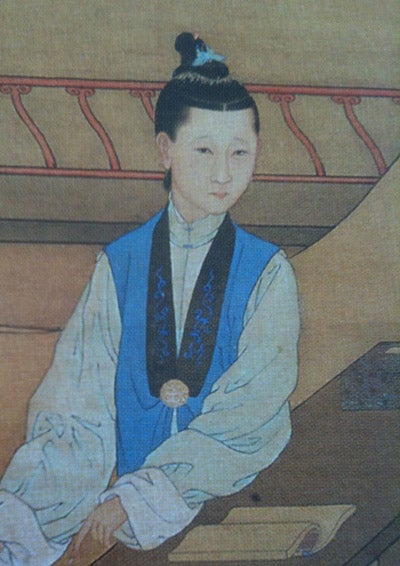Li Qingzhao
Li Qingzhao, 12th-century Chinese poet, is the subject of a new book by Ronald Egan, Confucius Institute Professor of Sinology at Stanford.
Li Qingzhao was born 1084 in Zhangqiu, Shandong province. She originated from a noble scholar-official family and was exposed to many modes literature as a child. She is, today, known as the greatest female writer in premodern China and her poems primarily focus on her solitude while her husband was away. She masterfully employs the use of wine and intoxication and wrote extensively about imagery and her surrounding environment, with a connection to nature as well. Much of her work was lost or remains in fragments, and only about a hundred of her poems have survived. Nonetheless, her poems remain one of the most popular bodies of work in premodern Chinese history and is continually studied by scholars to this day.
Joy of Wine |
Themes: Nature, Isolation
Poem: |
Summary: |
|
I remember in Hsi T'ing
All the many times We got lost in the sunset, Happy with wine, And could not find our way back. When the evening came, Exhausted with pleasure, We turned our boat. By mistake we found ourselves even deeper In thee clusters of lotus blossoms, And startled the gulls and egrets From the sand bars. They crowded into the air And hastily flapped away To the opposite shore. |
This poem describes the memory that a female speaker has with a companion, sharing experiences together with alcohol on a boat. There is a certain timeless nature described by the carefree atmosphere, as they are in no rush to return to where they came from and display a certain level of disarray because they get lost within lotus flowers and accidentally scare all of the birds on the sandbank.
|
Analysis:
Our theme of dreams is represented in the poem when it begins with “I remember”, which signifies that the speaker is recollecting an experience or a series of experiences that occurred in the past. To pair, there is a focus on wine as the impetus for the free-spirit, altered state that the characters are experiencing. The alcohol promotes a pleasurable evening that is full of freedom and fluidity, as the companions are not concerned about the time. Additionally, wine engenders a certain excitement and dreamlike wonderland that stimulates the emotions in the characters’ as well as a certain level of wandering and forgetfulness. She describes a tranquil, rich imagery of lotus blossoms and a sand bank of gulls and egrets that is disrupted by the pair, as the influence of alcohol and the comfort of physically being in a carefree state. This beautiful setting is surrounded by nature, and her and presumably her lover both enjoy outdoor activities in which they are engrossed with their surroundings. While different than the sorrow that drinking wine promotes when in a certain state of mind as well as a quest for immortality, Li Qingzhao deliberately uses wine in combination with a remembrance of the past to show the vitality and youthfulness of the young couple as well as to express a return to nature and the freedom it offers.

